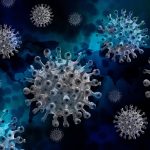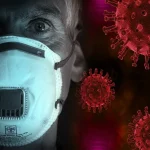“There will be no complete lockdown in Croatia as in some other European countries but there won’t be any major relaxation of the restrictions either. We need time to see what happens with the new virus strains,” Božinović said.
The current restrictions are in force until the end of this week and before they expire, a new set of measures will be made known, with three restrictions regarding commerce, borders and public transportation likely to be extended, while the relaxation of the ban on gatherings is being discussed the most.
“In the current situation, there is not much room for a strategy of major relaxation of the restrictions. The worst thing would be to open something suddenly and then to have to close it down again,” he said, noting that statistics on the number of new infections were better and better but that those number were not insignificant.
Future decisions will be impacted by the spread of the new virus strains which have already appeared in Croatia’s neigbourhood, by the slowing down of the vaccination process and the fact that we are still in the winter period, he added.
As for plans by cafe and restaurants owners to stage a protest against anti-epidemic measures, Božinović said that protests were a democratic instrument but that he did not know against whom and what they would protest as restrictions had not been introduced with the intention of making someone’s life harder.
“We all hope that as the number of new infections declines and vaccination proceeds some kind of normal life will be restored but it is clear that it won’t happen tomorrow,” he said.
Markotić: We can’t be sure mutated viruses are not already in Croatia
The head of Zagreb’s Dr Fran Mihaljević hospital for infectious diseases, Alemka Markotić, said that the situation regarding virus mutation was being seriously followed and that one could not be absolutely sure that the mutated viruses had not already appeared in Croatia.
“There are for the time being no hotspots with an extreme increase in the number of new infections, which is an indirect indicator that the mutated virus, even if it has arrived in Croatia, is not replicating significantly. There will be more mutations in the future but they need not necessarily be bad for humans. Mutations more often harm the virus than they increase its contagiousness. The situation will be followed,” said Markotić, noting that existing PCR tests can detect the British virus strain.
Capak: Croatia will not engage in bilateral talks with vaccine producers
Croatian Public Health Institute (HZJZ) head Krunoslav Capak said that Croatia was registering a 20% decrease in the number of new infections in the last seven days compared to the week before.
A total of 69,984 persons have been vaccinated and 11,907 have been revaccinated, he said.
For those who need a second shot, vaccination will be postponed for a week due to lack of the vaccine but that will not affect the quality of vaccination or immunity as the second shot can be received up to 42 days after the first one, he said.
He noted that Croatia did not plan to hold bilateral talks with vaccine producers as a common approach had been agreed at EU level but stressed that in the next four weeks Croatia would obtain 14 fewer boxes of the vaccine or 13,650 fewer doses.
Moderna should deliver 4,800 doses on Sunday, and in early February 10,800 doses should arrive for which there is no information that they could be delayed, Capak said.
“AstraZeneca has been instructed by the European Commission today to respect the deadlines and the agreed quantities better, so we hope that after today’s videoconference we will receive good news. The first delivery should be in mid-February, of 44,000 doses,” he said.
“We are thinking about what to do if small deliveries continue but we believe that larger quantities will arrive. Much of the effort is now directed at making the pharmaceutical industry change the drastic reduction in vaccine deliveries for all EU countries,” he said.
So far 284 suspected side-effects have been reported for the Pfizer vaccine, including 16 allergic reactions requiring administration of drugs and two requiring administration of adrenaline.
There have been 10 reports of side-effects for the Moderna vaccine, and the side-effects have all been mild.
The current 14-day incidence in Croatia is 216 new infections per 100,000 people. It is the highest in Sisak-Moslavina County, with 385.6 cases and the lowest in Istria, with 92.9 new infections per 100,000 people.












